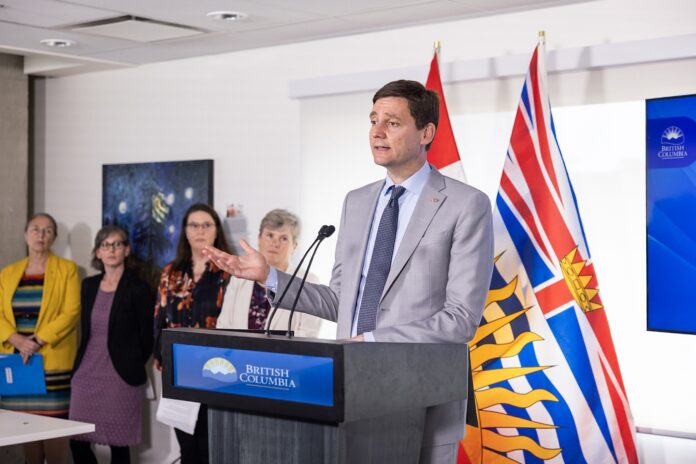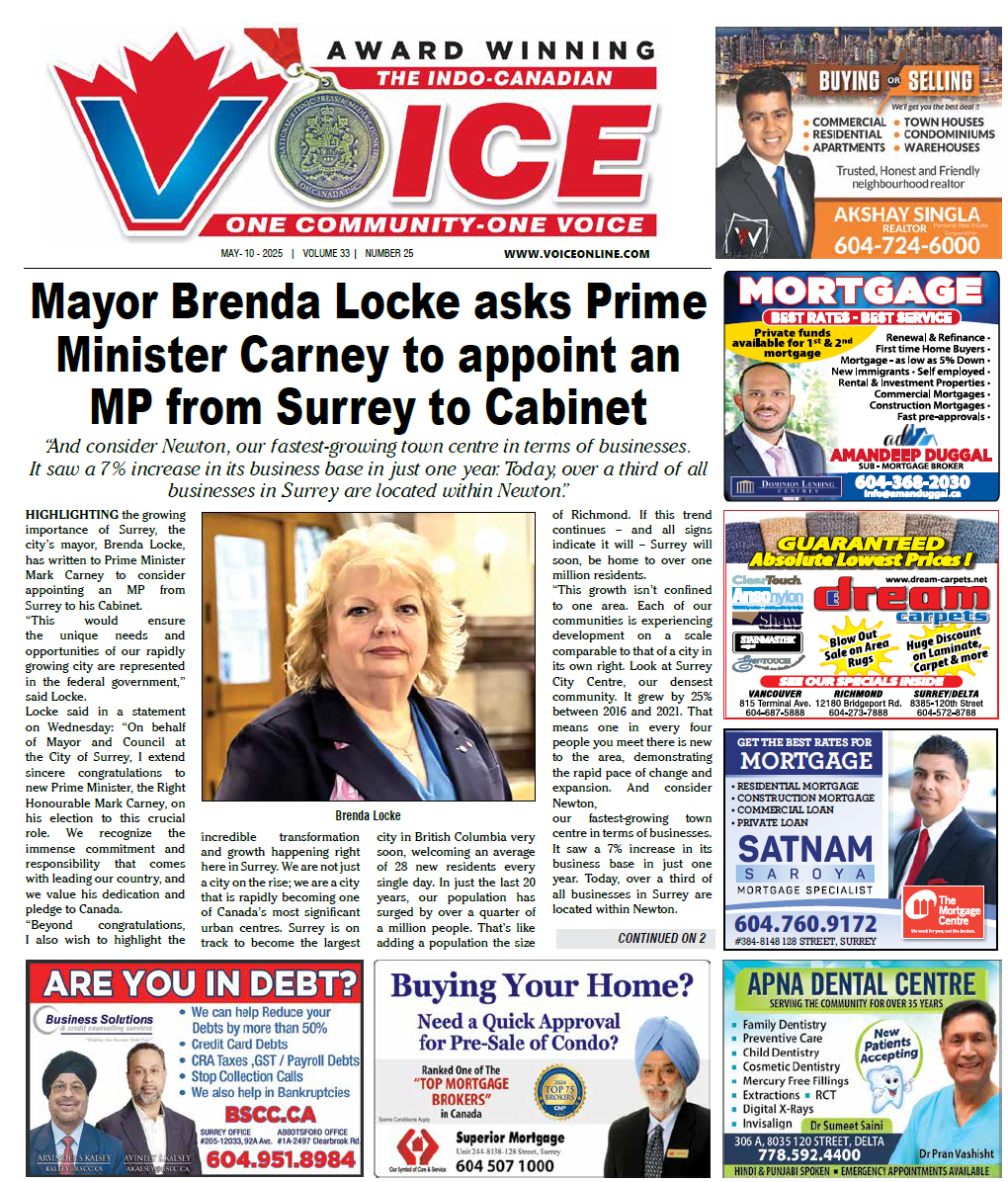NEW streamlined credential recognition means nurses from the United States can now work in B.C. much quicker, with registrations taking only a few days, compared to the previous average as long as four months.
“American health-care professionals are increasingly drawn to B.C. as a place that supports science, protects reproductive rights and takes care of people no matter how much money they have in their bank account,” said Premier David Eby on Monday. “That’s why I’m delighted to see that our new, fast-tracked credential recognition has cut registration time from months to just days and is bringing in new U.S. nurses to strengthen our public health system and deliver better care for British Columbians, faster.”
Since launching the new, streamlined process, applications from the U.S.-trained nurses have increased by 127%. The BC College of Nurses and Midwives is leveraging common systems and exams to make the registration process more efficient. Nurses can now apply directly to the college without first going through a third-party assessment organization. Collaborating with counterparts from the U.S., the college can access a database to review the education, exam results, employment and registration history of nurses who apply.
“With the uncertainty and chaos happening south of our border, we have an opportunity to attract the skilled health-care workers our province needs to strengthen public health care. That’s why we are ramping up our recruitment efforts in the U.S. and streamlining regulatory processes,” said Josie Osborne, Minister of Health. “And we are already seeing results with an increase in nurses applying to work in British Columbia and help deliver care.”
Since announcing its co-ordinated recruitment campaign in March 2025, nearly 1,200 nurses, doctors and allied health professionals from the United States have expressed an interest to come work in the province. This includes 573 physicians, 413 nurses, 133 nurse practitioners and 39 allied health professionals.
The Province is taking a Team BC approach to recruiting health-care workers from the U.S. and is working in collaboration with health authorities, regulatory colleges and other partners. This includes tailored support and guidance in navigating the process, provided free by Health Match BC. Recruiters are highlighting job opportunities for U.S. nurses in the areas they are the most needed, such as cancer care and emergency departments, as well as rural communities facing health-care worker shortages.
In early June, the Province will be launching a targeted U.S. marketing campaign in parts of the country with the highest interest in moving to B.C., including the states of Washington and Oregon, and select cities in California.
U.S. nurses, doctors and allied health professionals arriving in B.C. will be able to work in a variety of health-care settings throughout the province, including in primary care, where they can be part of team-based care.
An example is the Victoria Primary Care Network Allied Health Centre that opened in its new location at 1025 Johnson Street on April 24. Family doctors and nurse practitioners, who are part of the Victoria Primary Care Network, can have registered nurses to support them in their practices. Family physicians and nurse practitioners can refer their patients to the centre if they need services from clinical pharmacists, dietitians, social workers or mental-health and substance-use consultants. As well, Indigenous wellness providers, who are working from the Victoria Native Friendship Centre, are helping people access the allied health centre.
“This new and upgraded allied health centre is the result of government, Island Health, the City of Victoria and the local Division of Family Practice coming together to grow team-based care capacity and is tailored to the needs of the community through ongoing engagement,” Osborne said. “This is another action we are taking ensuring patients get the team-based care they need, when they need it, close to home.”
* Between 2018 and 2024, there was an increase of approximately 15,900 nurses registered in B.C.
* In total, there were approximately 75,400 nurses registered with the BC College of Nurses and Midwives at the end of 2024.
* Since 2017, B.C. has had the fastest-growing nursing workforce (27.3%) among major provinces according to most recent data from the Canadian Institute for Health Information.
* Since launching its new process for U.S. nurses in early April 2024, 177 nurses have applied to BC College of Nurses and Midwives and 113 have received their registrations to practise in B.C.













